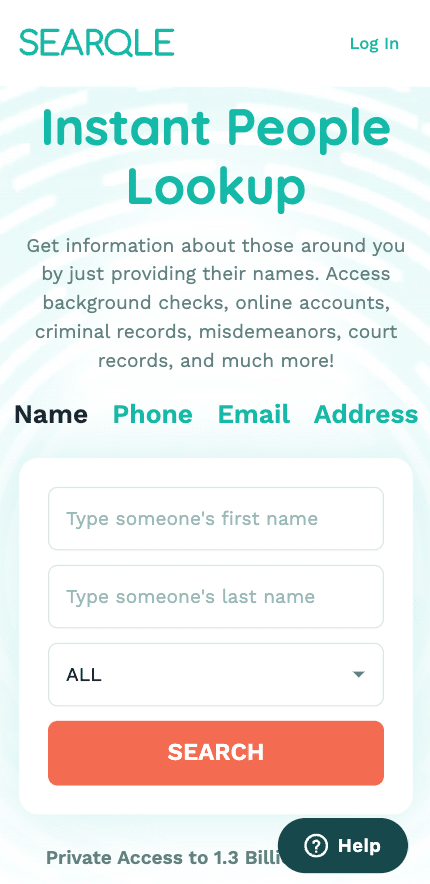It can be difficult and emotionally taxing to find biological parents. Whether you are adopted, separated from your family, or simply curious about your origins, you may have many questions and expectations about your search. However, there are also many aspects and consequences to consider before you begin your journey.
According to a 2022 report by the U.S. Census Bureau, 4% of children under 18 did not live with a parent, and 53.2% lived with a grandparent in 2019. Furthermore, a London-based study conducted by DNA Bioscience estimated that 8,900 to 20,000 paternity tests are performed in the United Kingdom annually, with adult children requesting parentage confirmation initiating 10% of the tests.
These statistics indicate that finding your biological parents is a common and complex issue that affects many people around the world. In this article, we will explore some steps, strategies, and resources to help you seek answers to the question, “how to find your real parents?”.

Best Ways To Find Biological Parents
Finding your birth parents can be a challenging and emotional procedure, but there are steps you can take to make it manageable.
- Discuss With Your Parents
Initiating an open dialogue with your adoptive parents not only honors your relationship with them but also acknowledges their role in your life journey.
They may hold valuable insights or documentation about your adoption process, including any information about your biological parents or the circumstances surrounding your adoption. This conversation can also provide emotional support as you start your search.
- Check Adoption Reunion Registries
Adoption reunion registries serve as centralized platforms where adoptees, birth parents, and other relatives can register their information in hopes of reconnecting. These registries often have resources and support services to assist in the search process. Registering your details and actively monitoring these platforms can help you find biological parents.
- Contact The Adoption Facilitator
If your adoption was enabled through an agent, lawyer, or other expert services, reaching out to them can be the best way to find biological parents. They may have maintained records or resources that could aid in locating your biological parents or provide guidance on how to proceed with your search. Additionally, adoption professionals may offer counseling or support services to assist you through this emotional journey.
- Use a DNA Testing Service
Utilizing DNA testing services offers a powerful tool for uncovering the details about how to find birth parents with little information, such as biological connections and ancestral roots. They provide comprehensive genetic analysis and comparison tools to identify potential relatives in their extensive databases.
Through DNA matching, you may discover relatives such as siblings, cousins, or even biological parents who have also undergone genetic testing, significantly expanding your familial network.
- Use Special Databases in Apps
In addition to DNA testing services, specialized mobile apps, and online databases cater to adoptees searching for their biological families. These platforms often aggregate information from various sources, including adoption records, social media profiles, and user-submitted data, to facilitate matches and connections between adoptees and their relatives. By exploring these dedicated resources, you can access additional avenues for locating biological parents and other family members.
How To Find Birth Parents With Little Information
Finding your birth parents with little information can be quite challenging, but it’s definitely not impossible. There are some methods and resources that can help you in your search. One of them is Searqle name lookup, a feature of the Searqle app that allows you to search for people by their name.

You can enter the name of a person you are looking for, and the app will show you possible matches from various sources, such as social media, public records, or online databases. You can filter the outcomes by location, age, or other measures. A Searqle name lookup can give you the answer to how to find your birth parents online.
What Are the Laws Concerning Access to Adoption Records?
Adoption records are documents that contain data about the adoption procedure, the birth parents, the adoptive parents, and the adopted individual.
Depending on the laws and policies of each jurisdiction, some or all of this information may be restricted or open to the public. Generally, three types of information can be accessed from adoption records:
- Non-identifying information is descriptive information that does not reveal the names or identities of the parties involved in the adoption, such as the date and place of birth, the medical history, the ethnicity, and the reason for adoption.
- Identifying information can lead to identifying the parties involved in the adoption, such as the names, addresses, or employment records.
- The original birth certificate is issued before the adoption, which may contain the name of the birth parent(s) and the original name of the adopted person.
The laws about access to adoption records vary by state and country and may change over time.
- Some states and countries have open records laws, which allow access to adoption records by the adopted person or the birth parent(s) without restrictions or consent.
- How to find birth parents in a closed adoption? Some states and countries have closed records laws that seal adoption records. In such cases, you may require a court order or a mutual consent registry to access them.
- Some states and countries have conditional access laws, which allow access to adoption records under certain conditions, such as the consent of the parties involved, the age of the adopted person, participation in a registry or a counseling program, or the existence of a medical or genetic need.
Conclusion
In conclusion, finding your biological parents is a personal and complex decision that requires careful preparation and realistic expectations. There are many ways to search for your birth family, such as using adoption agencies, hospitals, public records, online registries, and DNA tests. However, there are also many possible outcomes, ranging from happy reunions to disappointing rejections.
Therefore, it is essential to be respectful, sensitive, and open-minded throughout the process and to seek support from your adoptive parents, friends, counselors, or other adoptees. Find biological parents is a rewarding and fulfilling experience, but it can also be an emotional and challenging one. Ultimately, it is up to you to decide what is best for you and your family.


